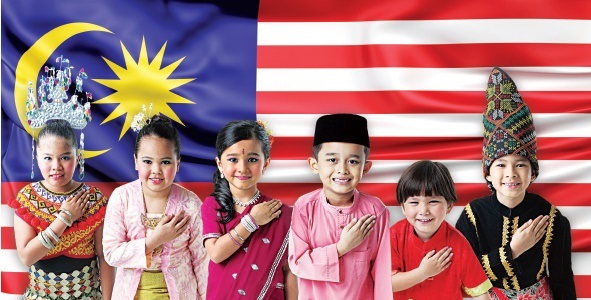By Aini Nabilah Sharipuddin
Every country and community is strongly linked with values, norms and taboos that have been inherited from one generation to another. Generally, Malaysia consists of three main races – Malay, Chinese and Indian – making it a multi-racial and a multi-cultural country.
The uniqueness of multiple races and their ability to coexist in one country peacefully and harmoniously becomes the main attraction for outsiders or foreigners to visit Malaysia.
Therefore, the emergence of many cultures and customs that arose since the colonial days and have existed until now, needs to be understood and taken note by everyone of us being Malaysian citizens.
This is because to understand the people, we need to understand their culture as well, which would help to maintain our relationship. Moreover, by educating ourselves about each other’s culture, we will be able to preserve and sustain unity amidst our differences.
Mahatma Gandhi, a known non-violent resistance leader, once said that œa nation’s culture resides in the hearts and in the soul of its people, which portrays the importance of knowing and learning about other’s culture.
First and foremost, appreciating other culture can prevent individuals from becoming skeptical and ignorant towards the practices of others. Otherwise, if the community is to celebrate any form of celebration or ritual, one would feel puzzled about the practices instead of showing tolerance and to accept them.
By educating ourselves, we can also abstain from condemning and judging other cultures even though they are deemed unfamiliar since we are able to respect and value the differences. For instance, I once wondered about the need for the Indians to display banana trees during their wedding ceremonies.
As for me, I thought that banana plants are meant for us to eat the fruits, and not supposed to be used for display like what they practised during weddings. That was until I asked my mother about my skepticism, when she informed me that the Indians believe that banana plants are a symbol of fertility, and are therefore symbolic for the couple to have many children in the future.
Moreover, by acknowledging other cultures, we are also able to understand the sensitivities and the do’s and don’ts of certain cultures. Currently, so many cases involving racial, religious and cultural sensitivities among us have been reported.
From Jawi calligraphy issues, putting cow heads in front of Indian homes, to throwing molotov cocktails in church grounds, these are acts carried out by irresponsible individuals, the result of lack of knowledge and compassion due to ignorance.
If no action were taken by the authorities to tackle these issues, it would have led to chaos among the various races in Malaysia.
In addition, knowing other cultures can also strengthen relationship and enhance communication among the different races in the country. All the individuals will become aware and recognise the limitations in their discussions of topics and the sensitivities that need to be avoided in the course of their interactions.
They will also feel more comfortable and inclined to accept the way of life of other races, as mentioned in the Malay proverb, œtak kenal maka tak cinta. This means we will readily accept something after we begin to recognise it.
Eventually, all citizens will come together and become united and set out to maintain the unison spirit regardless of the differences in identity such as race, religion, culture and so on.
The 13 May 1969 race riot, regarded as a black incident in the history of our country, should be taken as a vital reminder and a lesson for us all to always remember to maintain and preserve peace and harmony.
Understanding and educating ourselves about each other’s religion and cultural practices should help us to play a bigger role in preserving the peace-loving spirit between communities of our country.***
